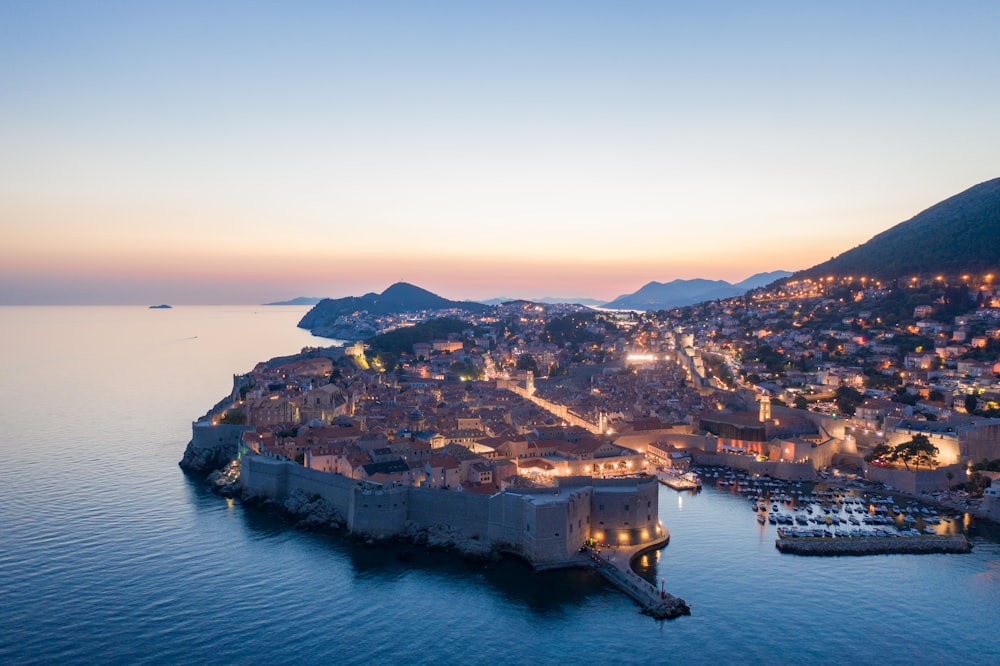
It’s no wonder why it is a popular destination for international students from Africa, Asia, South America, and Eastern Europe.
Due to the very impressive academic system being used in the country, the literacy rate in the country is around 98.1%. There’s so much that you need to know if you plan to study in Croatia as an expat.
In this article, we’ll be giving you an in-depth guide to the academic system in Croatia. By the end of this guide, you’ll know all there is to study in this European country, the cost of schooling in Croatia, and some admission requirements for international students.
Croatian educational system
According to Article 66 of the Constitution, everyone between the age of 6 and 14 is entitled to free compulsory education under their aptitudes and equal conditions.
Croatian academic system provides education services at basic, primary, high-school, tertiary education levels. There are also provisions for adult education for interested parties to acquire a degree with ease.
Private schools and colleges are established according to the legal framework provided by the state while universities are guaranteed true autonomy and independence. The university board has the right to change the structure, organization, and operation of the institution.
Many of the pupils start their academic education at the age of 3. They are enrolled in any pre-school institution chosen by their parent and school until in this institution until they’re 6.
After basic education, the pupil is promoted to an elementary school to complete eight years of compulsory education followed by four years of secondary school. At this level, education is divided into high school, technical, specialized, and mixed curriculum schools.
Between the 1st and 4th grades, only one teacher is assigned to a class to take the students on subjects like Croatian, mathematics, physical education, music, visual art, nature and society, and at least one foreign language.
Between the 5th and 8th grades, different teachers will be assigned to teach different subjects and the students will face more technical courses like history, chemistry, physics, informatics, geography, biology, and two foreign languages (English, German, French or Italian).
After completing high school, you can pursue a degree in any local or international university of your choice. If you choose to school in the country, there are exceptional universities in Zagreb, Rijeka, Split, and Osijek.
Pre-Primary education
All children legally living in the country including those asylum seekers, children granted international protection, and children with temporary residence have the right to enroll in kindergartens, daycare, and school in the country.
Kindergartens are not mandatory but admit pupils throughout the school year. This means that as long as the class is not filled up, your child can be enrolled in any kindergarten in the country.
Every child needs to be vaccinated before they can be enrolled in any school, daycare, or kindergarten in the country. Your child’s vaccination records are very important; they will be requested upon admission to ensure that it is safe at all times.
Primary education
Elementary education is free in Croatia and lasts for 8 years. The first four years are controlled by a single teacher while the next four years offer a wider curriculum, intensive courses, and a series of teachers experienced in certain fields.
Children between the ages of 6 and 15 years are enrolled in elementary schools. If your child is older than 6 years, he/she will be enrolled in a class after examination and assessment of school counselors.
If you just migrated to the country and your child doesn’t know the Croatian language, don’t worry, the school will organize 75 hours of preparatory Croatian language learning classes once he/she is enrolled in the school.
International schools
If you are worried that your kid won’t be able to keep up or you want him/her to have the same academic experience as those of your home country, there are a lot of international schools across the country.
International schools are the best solution for expat students studying in Croatia. They can continue schooling in an institution using the syllabus of their home country to understand the Croatian language and can study in any school in Croatia.
There are international schools for students from the US, UK, France, Australia, New Zealand, and Germany. These schools offer internationally accepted accreditation like the international baccalaureate and provide the same globally accepted standards of education.
Secondary education
Secondary education usually spans between three and five years depending on the type of school you are enrolled in. You have the right to decide which secondary school you want to attend but your admission into the institution depends on elementary school grades.
There are two types of secondary schools in Croatia: Gymnasiums and vocational schools. Gymnasiums offer a separate four-year track in mathematics, science, languages, and general education.
While vocational schools focus on producing entry-level employees. This program was introduced by the Croatian government to align vocational training with the EU model that includes listed occupational standards and qualifications.
Tertiary education
There are two distinct types of tertiary institutions in Croatia: universities and polytechnic schools. Admissions into any of these institutions are completed in an open competition announced by the university, polytechnic, or college.
Foreign students can also enroll in any higher education institutions of their choice but will be required to pay the tuition fee set by the institution.
Education fee n Croatia
Education in Croatia is for free and is compulsory for pupils between the ages of 6 and 15. Primary and secondary education is free because it is mostly funded by the Croatian Ministry of Education while Higher education is free because the Federal government funds all public universities in the country.
The government also allows tertiary institutions to set quotas for free enrollment based on the student’s performance.

